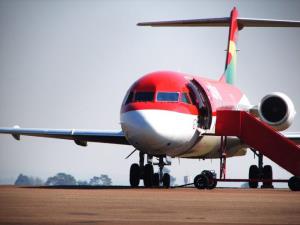
There is a joke that has circulated for some time that goes something like this: How do you become a millionaire? Be a billionaire and start an airline.
For decades, the airline industry was incapable of producing strong profitability. In the few periods when they did earn positive amounts of net income, a looming recession or business cycle downturn would more than wipe out the prior period’s good results. Airlines had been synonymous with cyclicality, capital intensity, low barriers to entry, and poor investments.
There are signs that United States-based airlines are leaving their past behind. One notable sign of that is the recent endorsement of Warren Buffett, the legendary investor, who had stated in the past:
The worst sort of business is one that grows rapidly, requires significant capital to engender the growth, and then earns little or no money. Think airlines. Here a durable competitive advantage has proven elusive ever since the days of the Wright Brothers. Indeed, if a farsighted capitalist had been present at Kitty Hawk, he would have done his successors a huge favor by shooting Orville down.
Nevertheless, Buffett has changed his mind about the industry and invested substantial amounts of money in the common stock of several airlines. According to the 2016 Berkshire Hathaway Annual Report and other SEC filings, his holding company now owns 7.5% of Delta Airlines, 7.0% of Southwest Airlines, 8.4% of United Continental, and 9.3% of American Airlines. Altogether, these stakes are worth about $9 billion, or 7% of Berkshire’s $122 billion common stock portfolio.
What changed in Buffett’s mind to alter his perspective so dramatically? The investment that was made is very similar to Buffett’s earlier investment in railroads. In 2007, after years of showing no attraction to railroads, Berkshire reported investing $6.5 billion in the sector. The bulk of that investment went to buying the common stock of Burlington Northern Santa Fe, which Berkshire would later buy outright.













Leave A Comment